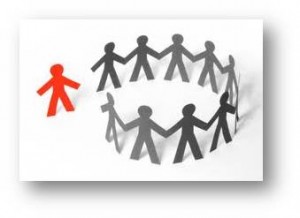Asking for Support: Getting the Help You Need – Part 2
by Dale & Juanita Ryan | see: Part 1
We resist getting help

In spite of the abundance of God’s love and grace and the many ways in which love and grace are available to us, we do not easily reach out for the help we need. Even when we have acknowledged our need for help, we may find ourselves hesitating, finding excuses, resisting. Resistance to getting help is often the result of a mixture of fear and despair and shame.
Fear
It can be frightening to get help. In the process we feel vulnerable and exposed. Jim’s Dad had made cutting remarks about him all his life. Jim was so accustomed to hearing that he was lazy and stupid and irresponsible that every time he shared in his support group, he expected to hear these same hurtful comments in response. Even though people didn’t respond this way, Jim imagined that everyone must be privately thinking these things about him. As a result, he would sometimes begin to share only to freeze with fear and find himself unable to talk.
Asking for Support: Getting the Help You Need – Part 2 Read More »



 What would Jesus think if I showed up in Bethlehem?
What would Jesus think if I showed up in Bethlehem?

 families. They can be excellent examples for mission clients and usually have special compassion and understanding for those who are still hurting. On the other hand, some are hindered in their efforts to minister to others because of their own codependency.
families. They can be excellent examples for mission clients and usually have special compassion and understanding for those who are still hurting. On the other hand, some are hindered in their efforts to minister to others because of their own codependency.

